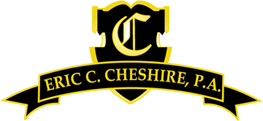Divorce and business ownership can often create problems for a couple. Untangling your financial assets from your spouse can be a time-consuming process. If you own your own business, you may wonder how the final details of your divorce and business assets will stand by the conclusion of your marriage. Splitting a business in a divorce begins with understanding the steps involved in the divorce process in the state of Florida.
Determining the Owner and Value of the Business
The first step in handling a divorce and business ownership begins with establishing whether it is a separate or marital asset. If you started or acquired your business before you married your spouse, the judge will most likely consider it separate property. However, there are situations that can change a separate asset into a marital asset. For example, if your spouse contributed financially to the business, the judge may view it as a marital asset instead. Other businesses will be considered joint properties from the beginning; if you and your spouse started the business together, the judge will likely determine that the company is a marital asset.
Establishing the Value of the Business
Once the question of ownership of the asset has been answered, the value of the business must be established by a court-appointed expert. The most common method for determining the value is to look at the company’s present earnings. If the business is expected to see greater earnings in the future, more complicated formulas must be used to determine the worth of the business. Other methods may include comparing the business to the earnings of similar companies or looking at how much it would cost to buy the business in question.
The Possible Outcomes in a Family Business Divorce Case
Once the court establishes the value of your business, the judge can decide how to handle the marital asset fairly between the spouses. The final resolution will depend greatly on the situation, but the most common outcome allows one spouse to keep the business while the other is compensated through the acquisition of other assets. For example, one spouse may keep the house while the other spouse maintains the business. You may also have the option to fairly compensate your spouse through other methods, including selling the business and splitting the profits.
What You Can Do to Protect Your Business
If you’re concerned about the ultimate fate of your business after your divorce, there are some steps you can take to protect it. Discussing potential outcomes with your spouse is a good way to avoid longer court proceedings. If you’re willing to work with your spouse to come to a fair agreement, you may be able to keep more of your company’s finances intact. Preventative measures, however, are the most effective way to avoid major issues during a divorce. These include keeping your business finances separate from your marital finances and maintaining meticulous records documenting ownership and investment into the business.
Divorce and business ownership can be resolved if parties are willing to work towards an agreement. If you or your spouse own a business, your divorce will play a large role in shaping the future of the company. For more information about how to split assets in a divorce, please contact Cheshire Family Law today at (561) 677-8090 for a consultation.

